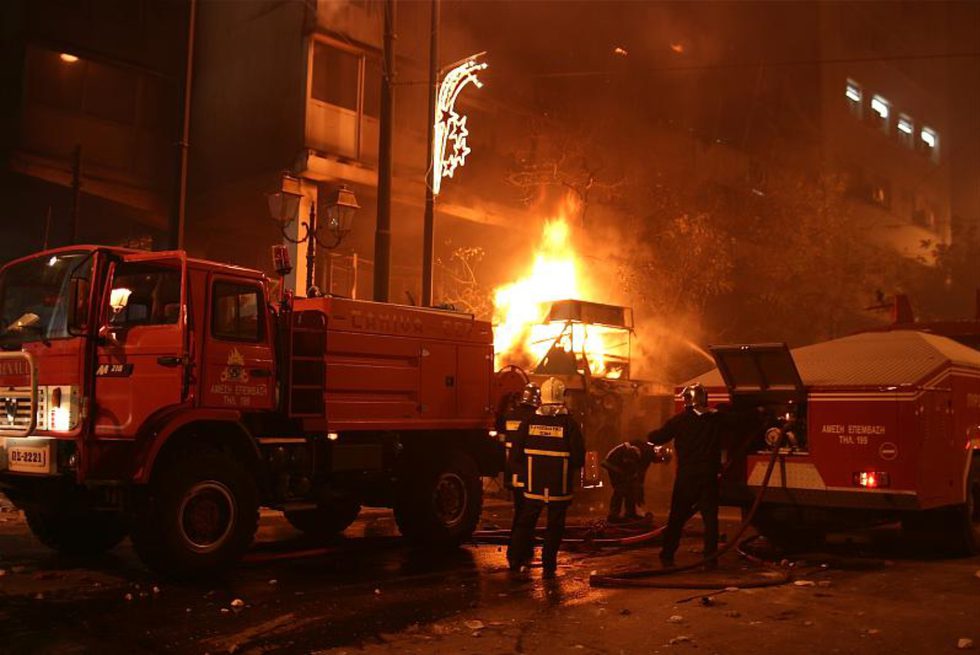
At last judged adequately modern, Greece won the privilege of hosting the summer Olympic Games in 2004. Many analysts have pointed to the national deficit that Greece incurred in preparing for the Games—the economic soundness of which has since proved chimerical—as the beginning of a downward spiral resulting in an economic crisis that has left the country incapable of servicing its debts, sustaining the operations of its governmental sector, and maintaining its longstanding institutions of civic welfare. The flood of refugees that it has received in the past decade has further burdened its limited capacity to extend welfarist relief and support to its citizens. Critique from all fronts is the order of the day. On the one hand, we hear—not merely from foreigners—of a naughty Greece, which finally has to pay for its social, cultural, and fiscal sins. On the other, we follow in our newspapers and watch on our television screens a large segment of the Greek populace engaging in protest against the terms that it cannot but accept as conditions for remaining within the European Union. These protests have at times left key Greek city centers in flames—and on at least one occasion, in the flames of self-immolation. Literally and figuratively, Greece has been burned, and is burning. Life goes on even so.
Posts in This Series

Introduction: Greece is Burning
Greece is constantly in the news these days—and for good reason. A debtor nation deeply dependent on external aid since its inception in the first third of the ... More

Cultural Blindness
In the 1980s, the European Commission developed an ambitious research program whose goal was the investigation of the future of the European Union and had as ... More

Ex Nihilo Nihil Fit: On the Greek Crisis
Most ethnographic studies of Greece published during the last few years pay attention to issues like new forms of poverty, resistance structures, solidarity eco... More

Vocabulary of the Future in the Midst of the Greek Crisis
Hope was the pre-election motto of Syriza, the left-wing party that won the January 2015 elections in Greece. Hope is coming; we open the way to hope; a country... More

The Chronicities of Crisis in Athens’s Social Solidarity Clinics
Dominant accounts of the Greek crisis highlight aberrant, even spectacular qualities. Images of forests and banks on fire, or Molotov cocktails exploding, contr... More

Puerto Greeko
The United States has no idea what it means to be in a monetary union. Some days ago, I said to my friend Jack Lew that we will take Puerto Rico into the Eurozo... More

Not Another Polytechnic Occupation! Reading the Graffiti on the Athens Polytechneio, March 2015
The Polytechneio—the old neoclassical complex of the National Metsovio Polytechnic University on Patission Avenue in Athens—is a charged space, a topos of Helle... More

Grassroots Oral History Groups: Creating New Identities and a New Narrative
Since 2010, Greece has been going through a labyrinthine crisis that has touched and dramatically changed all aspects of people’s lives and frames of reference,... More

Funny
Anthropological interest in Greece centers on the crisis, and most recent ethnographies leave readers with feelings of compassion, solidarity and respect for th... More

Money Talk
During my first stays in Athens in 2000 and 2001, I came to learn the various taboos surrounding talk about prices, about the costs of things. I wish I could sa... More

Never Alone/Find the Way
January 2016: six years now living under a memorandum of understanding with Greece’s creditors. One year following Alexis Tsipras’s rise to power with the Syriz... More